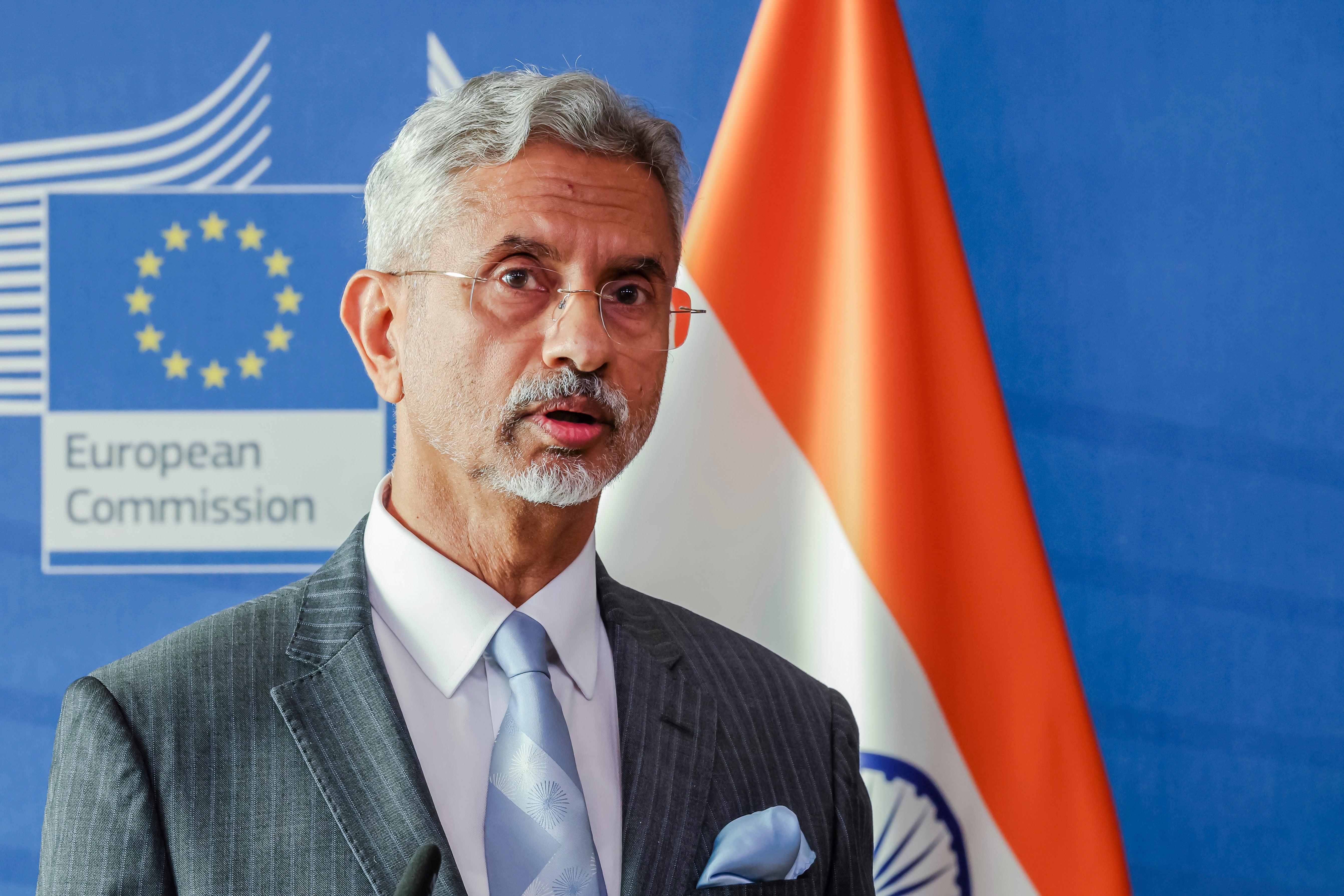India hits back at EU’s criticism over Russian oil: ‘Look at your regulations’
Brussels’s chief diplomat says EU will ‘have to act’ against ‘circumvention of sanctions’

India has hit back at the European Union’s suggestion of cracking down on the country for reselling refined Russian oil to Europe by considering it a circumvention of Western sanctions on Moscow for its war on Ukraine.
India’s foreign minister Subrahmanyam Jaishankar, who was in Brussels during the last leg of his three-nation tour, strongly denied that his country was violating any sanctions imposed on Russia and said the oil in question could not be treated as Russian oil if it is refined in another country before being exported.
Mr Jaishankar was asked a question at a press conference shortly after the EU’s foreign minister Josep Borrel said the the bloc will “have to act” if sanctioned diesel or gasoline is still making its way into Europe via India.
Mr Borrel made the remarks in an interview with the Financial Times: “If diesel or gasoline is entering Europe... coming from India and being produced with Russian oil, that is certainly a circumvention of sanctions and member states have to take measures.”
He said it was understandable that India wanted to take advantage of the EU’s limitations, leading to discounted prices of oil but said it was unacceptable if Russian-origin refined products were being sold to Europe.
“That India buys Russian oil, it’s normal. And if, thanks to our limitations on the price of oil, India can buy this oil much cheaper, well the less money Russia gets, the better,” Mr Borrell said.
“But if they use that in order to be a centre where Russian oil is being refined and by-products are being sold to us... we have to act.”
Since Russia’s Ukraine invasion in February 2022, India has emerged as the largest buyer of Russian oil from almost negligible imports before the war. Russia diverted a majority of its oil exports to its Asian allies, India and China, at discounted rates after Western sanctions plugged the Kremlin’s huge earnings from the oil trade.
The Independent reported in April that Russian-origin oil was still entering European markets as Indian refiners exported refined products by changing the source of origin of the fuel.
Responding to the comments, Mr Jaishankar said: “I really don’t see the basis for your question. My understanding of Council regulations is that if Russian crude is substantially transformed in a third country it is not treated as Russian any more.”
He urged for a look at the EU’s regulations, specifically 833/2014, “concerning restrictive measures in view of Russia’s actions destabilising the situation in Ukraine”.
Amendments were introduced in the regulation during the 9th EU sanction package on 16 December 2021. It has exemptions from the prohibition on the sale, supply and transfer of certain goods under some conditions.
Mr Borrell’s comments came shortly before he was to meet Mr Jaishankar on the margins of the first EU-India Trade and Technology Council (TTC).
The two did not discuss oil during the meeting, but the EU diplomat reiterated the bloc’s “unwavering resolve to support Ukraine”, and sought Delhi’s support in mediation between the warring parties.
“The High Representative asked MEA Jaishankar for India to support Ukraine’s peace initiative, and to urge Russia to agree on the crucial extension of the Black Sea Grain Initiative,” the statement by the EU said.
Following the meeting, European Commission vice president Margrethe Vestager said the EU would have a discussion with India on the issue as “friends” and said this would be “with an extended hand and of course not with a pointed finger”.
Rarely buying Russian oil due to a long trade route and high transport cost, Indian refiners imported 970,000-981,000 barrells per day in the 2022-23 fiscal, accounting for more than a fifth of the country’s overall fuel imports, according to Kpler.
Any mechanism to stem the flow of Russian oil to Europe would need to be implemented by national authorities, Mr Borrell said on Tuesday.
He suggested that the EU could target buyers of Indian refined fuels which it believes are derived from Russian crude.
“If they sell, it is because someone is buying. And we have to look at who is buying,” he said.
Join our commenting forum
Join thought-provoking conversations, follow other Independent readers and see their replies
Comments


Bookmark popover
Removed from bookmarks